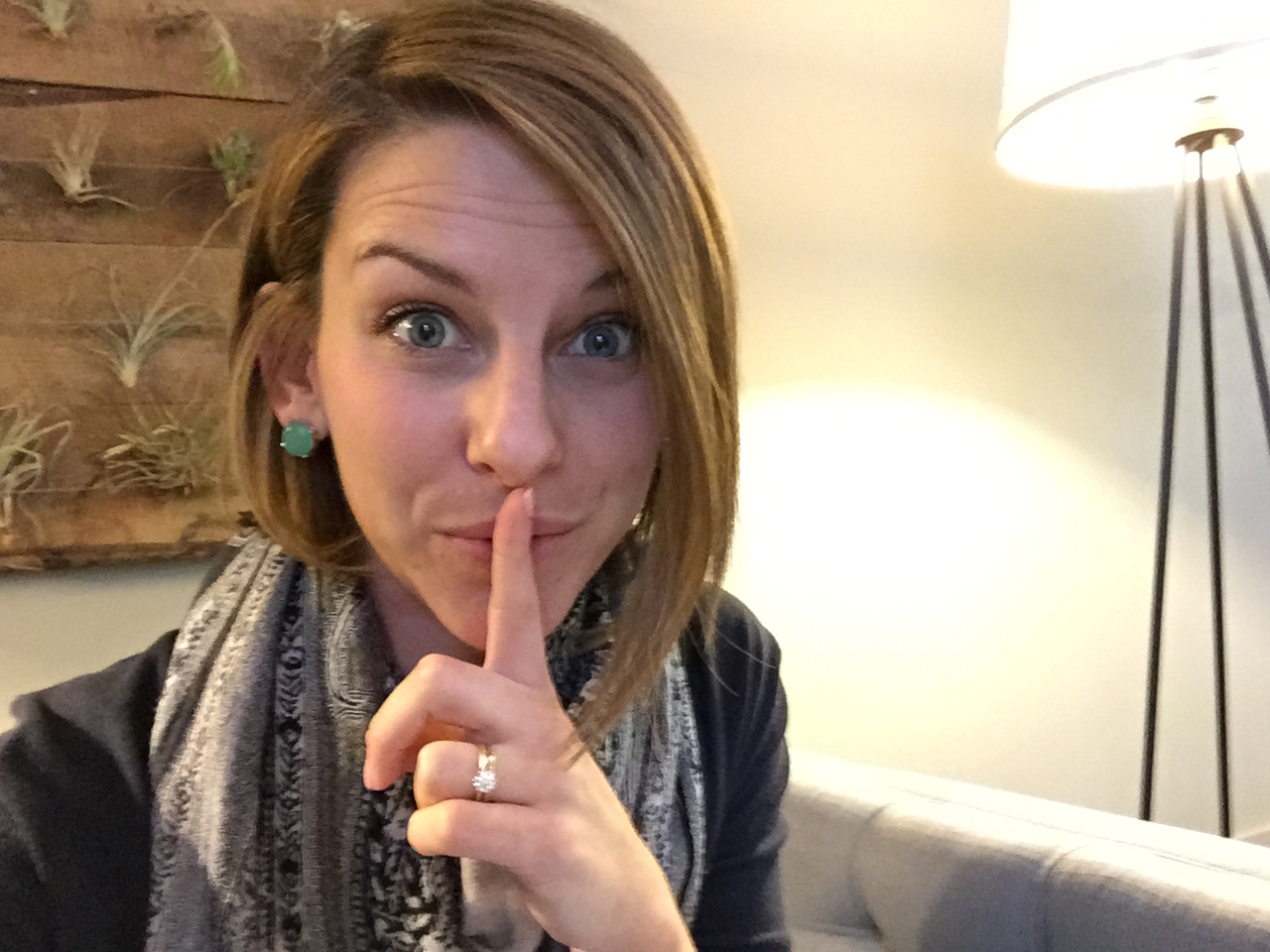 ... but I'm bringing Growing up Gibson back.
... but I'm bringing Growing up Gibson back.
Stay tuned.
WRITING
 ... but I'm bringing Growing up Gibson back.
... but I'm bringing Growing up Gibson back.
Stay tuned.
Choosing a new book can be daunting. There are so many choices, and if you're like me and refuse to purchase books on an e-reader, the stakes are even higher. If I'm going to fork over $15 and sacrifice another two inches on my ever-shrinking bookshelf, it better be worth it. Let me save you some of the hassle this year, and just say... GO GET THESE BOOKS NOW. I've read them. They're worth it.
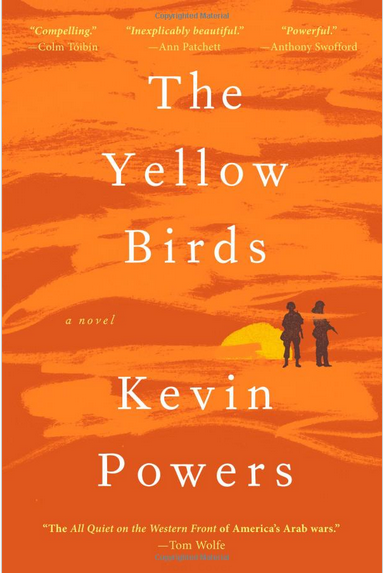
This debut novel by Kevin Powell follows two enlisted soldiers as they fight to survive the war in Iraq. Powell's writing is compelling, heartbreaking and understated. He's being compared to Hemingway, and rightly so. The book has won the PEN/Hemingway award, The Guardian First Book Award, and was a finalist for the National Book Award. Not too shabby. (Originally recommended by: The NYT.)
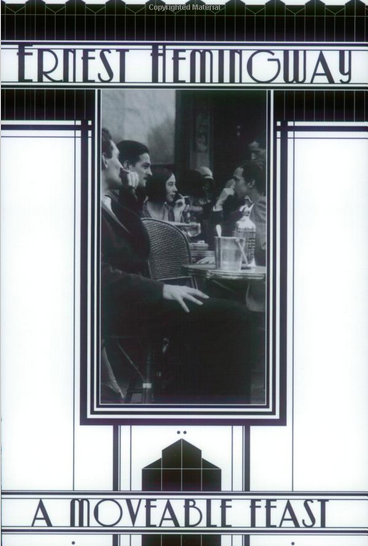
And speaking of Hemingway... read A Moveable Feast, a memoir of Hemingway's early writing years in Paris, from 1921-1926. I packed this book in my carry-on bag to Europe, and devoured it alongside a few buttery croissants. How's that for Parisian? My favorite parts were reading that even Hemingway and his friend F. Scott Fitzgerald suffered from insecurity and doubt. Go figure. (Originally recommended by: a friend.)
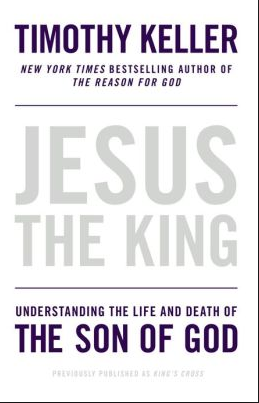
I've never read a book about Jesus that touched me so deeply. Tim Keller, the teaching pastor at Redeemer Presbyterian Church in NYC, wrote this study of the Gospel of Mark in small digestible chapters that make you underline and star until your hand wants to give out. Made me fall in love with Jesus all over again. (Originally recommended by: my pastor.)
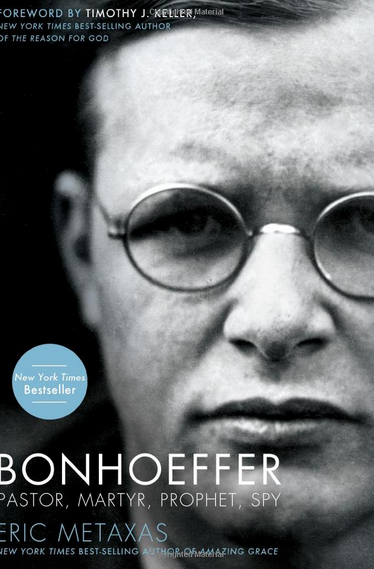
Dietrich Bonhoeffer was a German theologian and teacher during the time of World War II. In this biography, excellently reported and written by Eric Metaxas, readers follow Bonhoeffer as he tries to dismantle the Nazi party from the inside, in the famed Valkyrie plot and in his attempt to smuggle Jews through Switzerland. It's a compelling look at how religion can fall victim to the power of the state, and how one man can choose the harder right instead of the easier wrong. It's long, but worth it. (Originally recommended by: my mom.)

It's no secret that I'm writing a book. Perhaps I should have kept it a secret. I've heard that some writers do that. But I didn't. I opened my mouth and I told people, and now—for better or for worse—I have to write it. And for better or worse, I have to finish it. I've written 16 loose and repetitive chapters that are chock-full of cliches and stereotypes and really bad grammar. (And typos. Oh the typos.) But they are there, waiting to be made better, and that is good news. A writer can ask for nothing more than a bad page written. So, for my Christmas present this year, I didn't ask for a new jacket or the latest gadget. I asked Santa (aka, Patrick) for a chance to get away and write. He said yes, and here I am.
I discovered this little place after my friends, photographer Brad and Jen Butcher spent a week here on a "staff retreat" for their two-person, husband-and-wife business. So I followed in their footsteps.
Now, I am no fool. I've done writers' retreats before. I don't believe that hiding away in the woods will make my words any more brilliant than they might be if they were written at a Starbucks or in my 10 x 8 guest room. But I do believe that here, I have the luxury of late-night hours and solitude and classical music and a fire place. So, what am I learning in the treehouse?
Today I spent most of my time reading and re-reading a speech William Deresiewicz delivered in 2009 to the plebe class at West Point. His transcribed 12-page speech is a look into leadership and solitude, and why one is a prerequisite for the other. Here's just one morsel. I hope it convinces you to read the entire thing, front to back, twice.
Thinking means concentrating on one thing long enough to develop an idea about it. Not learning other people's ideas, or memorizing a body of information, however much those may sometimes be useful. Developing your own ideas. In short, thinking for yourself. You simply cannot do that in bursts of 20 seconds at a time, constantly interrupted by Facebook messages or Twitter tweets, or fiddling with your iPod or watching something on YouTube.
... It seems to me that Facebook and Twitter and YouTube–and just so you don't think this is a generational thing, TV and radio and magazines and even newspapers too—are ultimately just an elaborate excuse to run away from yourself. To avoid the difficult and troubling questions that being human throws in your way.
So what am I learning?
Here goes something.
A few days ago, four freelance writers I admire—Megan Pacella, Liz Riggs, Jennifer Bradley and Christina Vinson—shared why someone shouldn't be a freelance writer. Their answers were as varied as they were honest. But for better or worse, all five of us are freelance writers. So why—or rather—when should you be a freelance writer?
Here's what they said:

MEGAN: For almost four years, I worked as a full-time content strategist and a part-time blogger, freelance writer, and freelance editor. After a few years of building up a client base and hand-picking which projects sounded awesome, which sounded boring, and which paid too much to pass, I realized that I absolutely love working for myself. When you wake up every day and start making the mental rounds of companies and magazines you want to write for, and then you work up pitch ideas while you're in the shower, you should be a freelancer. Because, while there are hard days (really hard, terrible days where you don't want to get out of bed), most of the time nobody is going to have to motivate you.
LIZ: If everything you do, see, and think about lands you in front of your computer for a think piece or a blog or an email or a pitch, then maybe you’re onto something. But, keep your full time or part time gig until you’ve got a steady stream of assignments. I was freelancing (like, seriously FREElancing) for over a year while working full time, and I after four months of full-time freelancing and zero-time salary, I am already looking for part time gigs to supplement my income —my checking account has seen a serious dip in the past few months. Plus, the social aspect of an actual job (full or part time) can do loads for your pitch ideas, social life, and morale while living the lonely life of a writer.
JENNIFER: I don't mean "anything" as in anything unethical. I'm talking, "I'd work at Starbucks, work at retail (which was my least favorite of all my college jobs), be a dog walker, etc..." I remember having a conversation with my husband when I'd decided to embark on this crazy freelancing adventure and he was concerned about the possible instability of a writer's income. I said, "Honestly, I'd clean toilets on the side, if it meant that I could do this for a living." If you're that committed to making it work, then go for it. [Thankfully it's never come to that – ew!] The truth is, most freelancers who are making a good income have a lot of different things in their "mix" – it's not just the exciting assignments that pay the bills. I have a couple of less exciting corporate clients, ghostwriting gigs and copywriting assignments that are well paying and consistent, and those give me the freedom to take on the "fun" gigs that feed my creativity.
CHRISTINA: Let me explain. Dress pants, to me, symbolize the environment that comes with a corporate office job. I worked in that setting for six years, mostly in higher education. I bought dress pants from Banana Republic, commuted to work, packed my lunch, engaged in office small talk, and "lived for the weekend." In short, I was a "typical" worker -- and yet, I felt there could be so much more to life. The creative side of my brain felt completely trapped and I really felt that my life didn't begin until after 5pm. Sound familiar? So, I became completely determined to do whatever it would take to break into a freelance writing career. I met with other freelance writers (like Claire) on the weekends and on my lunch break. When I got home at 5pm, I began working on anything that would help me take the plunge into freelance writing, including blogging, networking with anyone who would listen, and picking up tiny writing projects. It was exhausting and exhilarating all at once. Eventually, I gained enough traction to go out on my own, into the world of freelance writing, and it's been a wild ride ever since. Today, my dress pants are untouched, in the back of my closet.
So there you have it folks. Four different perspectives on why you should and why you shouldn't be a freelance writer. I will echo these ladies and say that I haven't exactly found a way to make a feasible living off of being a freelance writer alone. All along the way, I have had part-time jobs, coaching gigs, editing stints, and one-off jobs that, and one insanely supportive husband. To know more about my journey into the wild wonderful world of words—read the "big announcement" I made a year and a half ago, or click here to see all of my writing about writing. Ugh. How meta.
We'd love to hear your thoughts on this series. Would you want to see more about freelance writing here? Or would you rather get back to posts about poo?
RELATED:
People often ask me how to start freelance writing. I always try to respond with a clear, concise, and uncalloused answer—just like Kim Green did for me. But the truth is—this job isn't for everyone. And sometimes, this "job" pays so little, that it feels like I need to get another job. And while there are many reasons people want to write for a living, there are just as many reasons why they shouldn't.
For this post, I turned to four freelance writers I admire, and asked a simple question: Why shouldn't someone become a freelance writer? Megan Pacella, Jennifer Bradley Franklin, Liz Riggs, and Christina Vinson all came to the table with different answers. Hopefully, together, we can dispel some of the myths of this profession and clarify the risks you take on as a writing entrepreneur.
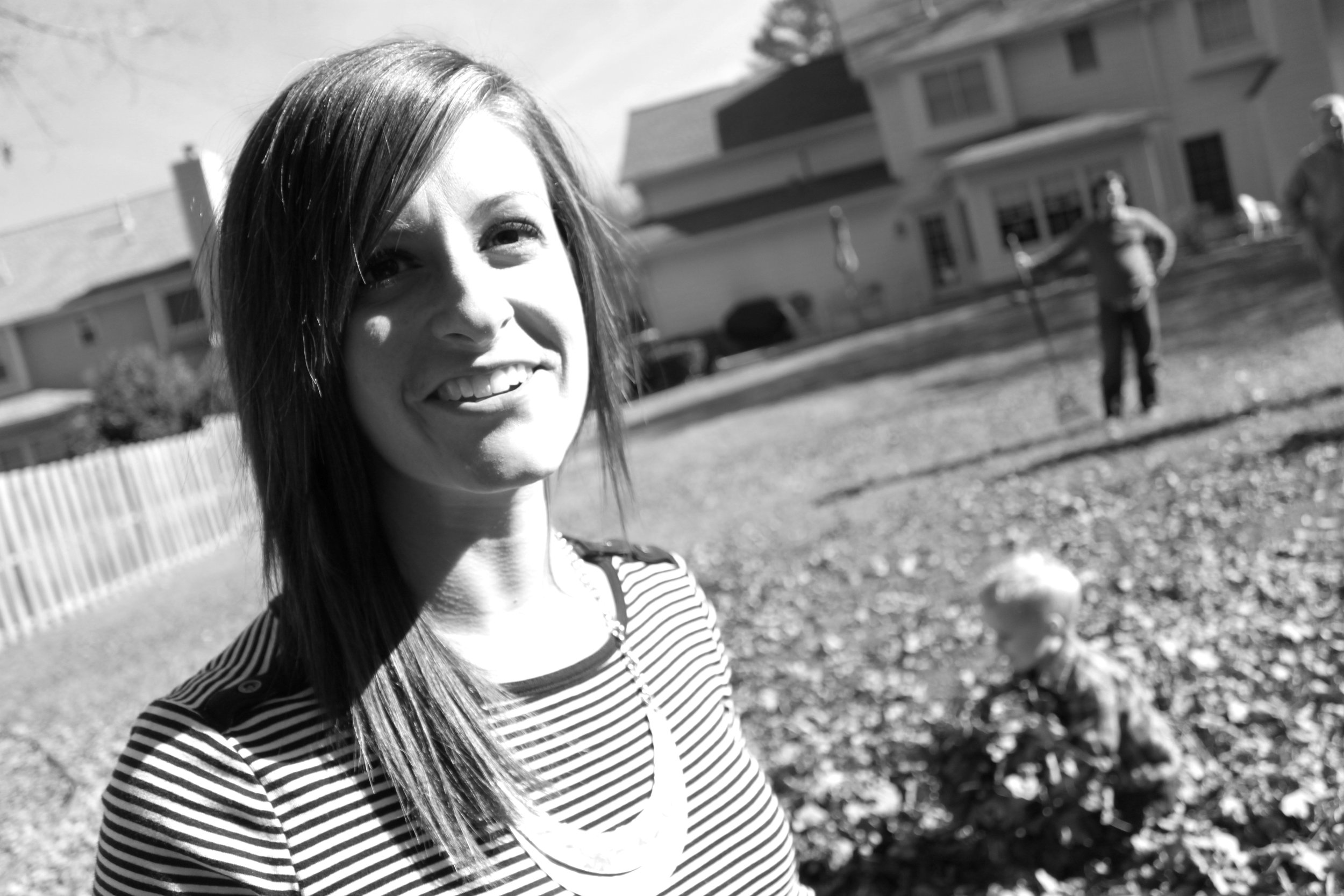
MEGAN: Your schedule is actually going to get out of control once you build up several clients. Without the job description or boundaries to say, "This deadline is too short," you will frequently end up turning around long stories or editing projects with just a few day's notice.
Too often, on Thursday nights when your besties are watching Grey's Anatomy (Oh, wait? Is that just me? I think everyone else quit watching in 2008), you'll be plugging away in front of your computer. You'll check your emails on vacation, and you'll work for at least a few hours every holiday while your family hangs out together around the kitchen table. That's not to say that there are no vacation days. But for the most part, being a freelancer means being extremely flexible.
Megan Pacella is a writer and editor based in Nashville, Tennessee. She's done everything from restaurant reviews to small business profiles to full-length features to marketing copy. She loves to travel, cook and cuddle up with her golden retriever. Megan also has a sweet haircut and is an incredibly thoughtful wife and friend.
 JENNIFER: The reality is, freelancers (especially those who get to write about food, travel, fashion, etc...) do get to do some really cool things. They get to try new restaurants, see far flung parts of the world, interview interesting designers, test out spa services, etc... BUT if you think those fun bits are going to be the lion's share of your "job," you're sorely mistaken.
JENNIFER: The reality is, freelancers (especially those who get to write about food, travel, fashion, etc...) do get to do some really cool things. They get to try new restaurants, see far flung parts of the world, interview interesting designers, test out spa services, etc... BUT if you think those fun bits are going to be the lion's share of your "job," you're sorely mistaken.
Being a freelancer is about running a business. You have to handle invoicing, accounting, pitching, marketing, maintaining relationships—and, truth be told, those fun assignments likely won't fully pay your mortgage. You'll probably need to take on some less glamorous jobs to make it shake out to a livable income AND you have to be willing to hustle. All. The. Time. It's a lifestyle that not everyone's cut out to lead. [Side note: it helps to have a thick skin. You'll get more rejections than assignments, especially at first, so it helps to have enough drive to push through that.]
Jennifer Bradley Franklin is an Atlanta-based writer and journalist. Her work has been featured in People, All You, American Airlines Magazine, Alaska Airlines, Daily Candy, and a long list of other publications. She also gives incredible travel-writing seminars.
 LIZ: Liking writing and making money off of it are two totally different things. The great part about freelancing is that you can pick and choose your own assignments (although, actually getting the assignments does seem to be even trickier than imagined), but the likelihood of being paid cash-money to do it isn’t great (at least at first).
LIZ: Liking writing and making money off of it are two totally different things. The great part about freelancing is that you can pick and choose your own assignments (although, actually getting the assignments does seem to be even trickier than imagined), but the likelihood of being paid cash-money to do it isn’t great (at least at first).
As far as “liking writing” and then “going freelance” is concerned: just stop. If you spend all your free time and Saturday mornings and late nights blogging, writing articles that you hope will be published, reading magazines and websites and stalking editors—then maybe it’s time to go freelance. But if you’re just thinking you’d like to put your paper-writing skills into a paying profession, try writing 1,000 words a day for at least a month and then see how you feel. Fo reals! You may be like YES, IT’S TIME! I CAN’T STOP WRITING AND NOBODY CAN STOP ME! Or, you may be crying on the floor of your bedroom because you don’t want to look at your computer screen for one more minute.
Liz Riggs, also known as @riggser, is a freelance writer in Nashville, Tennessee. Her writing has been featured in Relevant Magazine, The Huffington Post, Portable, American Songwriter, among others. She's also really funny. I mean, just check out her bio. Liz likes macaroni and cheese. And one time, I posted pictures of her face all over Georgia Tech's campus.
 CHRISTINA: Freelance writing is by far the most difficult job I've ever had, and also the most rewarding. Suddenly, you're not only your boss, but also your own accountant, assistant, communications expert, social media manager, business developer, and so much more.
CHRISTINA: Freelance writing is by far the most difficult job I've ever had, and also the most rewarding. Suddenly, you're not only your boss, but also your own accountant, assistant, communications expert, social media manager, business developer, and so much more.
There are many days where I don't do much writing at all, but am working on invoicing, networking, interviewing, and finding more gigs. It's not just about writing, it's also about owning a business -- and you have put a tremendous effort into both. You won't start out knowing everything, and this job is certainly never easy. But it's so rewarding. My mantra each day is based what Maya Angelou said, "I did then what I knew how to do. Now that I know better, I do better."
Christina Vinson is a freelance writer based in Nashville, Tennessee. She's written for The Christian Post, Bearings, Taste of Country, Native, and others, all while writing really thoughtful web content for clients across the country. She's also written back-cover copy for books, which I find fascinating. Christina lives with her husband in East Nashville and visits her twin sister, Nicole, as much as possible. She also wrote about how I said "bullshit" once.
FINALLY: Just because these four women gave you four reasons not to do the job we've all decided to do—doesn't mean you shouldn't do it at all. In fact, all four women also told me why you SHOULD be a freelance writer. Stay tuned for part II.